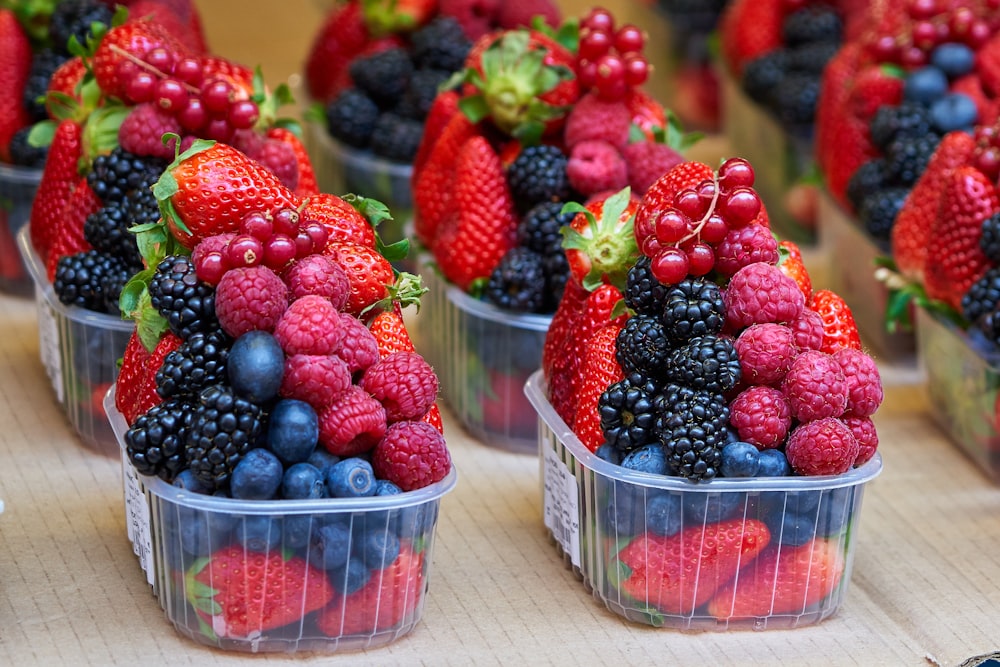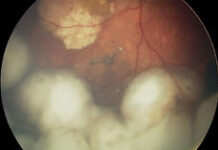
July is National Berry Month! If berries aren’t part of your daily diet, now is the perfect time to start eating more of these fruits. Blackberries, blueberries, raspberries, and strawberries are all great options that are bursting with antioxidants, vitamins, minerals, and fiber, which help reduce the risk of cancer and other chronic diseases.
It’s important to eat a variety of berries so you can reap the benefits of the different vitamins and minerals these fruits have to offer.
Blueberries
Blueberries are rich in antioxidants and protective plant compounds like anthocyanins and can help fight inflammation. They may improve brain, eye and heart health, and help to reduce cancer risk. The sweet taste of this berry makes it a nice addition to salads and smoothies.
Selection:
- Choose blueberries that are firm, plump and dry with a dusty blue color and are uniform in size.
- Avoid berries that are soft, shriveled or have any sign of mold.
Storage:
- Refrigerate blueberries for up to 10 days. Wait to wash until ready to eat.
Reap the benefits of blueberries in AICR’s Blueberry Blast Smoothie. This is an easy 5-minute recipe that features frozen blueberries — the secret to making this smoothie have the consistency of a milkshake.
Raspberries
Raspberries contain dietary fiber and polyphenols, which both play an important role in a cancer-protective diet. Did you know that 1 cup of raspberries contains 8g of fiber? AICR recommends eating at least 30g of dietary fiber per day as part of a healthy eating pattern to lower cancer risk.
Selection:
- Choose raspberries that are firm, plump and dry.
- Avoid wet or moldy berries.
Storage:
- Do not wash raspberries until ready to eat. Refrigerate for use within 1-2 days.
Summer fruits like raspberries and nectarine make for naturally sweet desserts. Try this Nectarine and Raspberry Cobbler recipe, which is sure to be a crowd pleaser.
Blackberries
Blackberries are another great source of dietary fiber. One cup of blackberries contains 8g of fiber and these berries are high in vitamin C. You can pair blackberries with almonds or walnuts for an easy, high-fiber snack.
Selection:
- Choose blackberries that are shiny.
- Avoid blackberries that are bruised or leaking.
Storage:
- Refrigerate blackberries for 3-6 days. Wait to wash until ready to eat.
Try incorporating blackberries into your diet with this tasty Baby Greens with Blackberry Vinaigrette Salad recipe. You can pair this salad with a glazed salmon for a healthy and delicious meal.
Strawberries
Strawberries are an excellent source of vitamin C and manganese and are rich in plant compounds, like polyphenols. Sweet, juicy and tart, these berries add a great flavor profile to any meal or snack.
Selection:
- Choose strawberries that are shiny and firm with a bright red color. Caps should be fresh, green and intact.
- Avoid shriveled, mushy or leaky strawberries.
Storage:
- Do not wash strawberries until ready to eat. Store in refrigerator for 1-3 days.
This 5-minute Ricotta Basil Strawberry Toast is a perfect combination of savory and sweet flavors. You can also use any type of berry you have at home for this recipe.
More Tips for Eating Berries
Summer is a great time to add fresh berries into your daily diet, but keep in mind that frozen berries are available year-round and provide just as many health benefits. You can eat berries by themselves or add them to different meals and snacks. Below are a few easy ways to help you add more berries into your diet:
- Add on top of cereal, oatmeal or yogurt
- Toss into a salad
- Throw a handful into a smoothie
- Add to ice water for a naturally sweetened fruit infused water
To celebrate National Berry Month this year, choose a new recipe to enjoy with family and friends each week! You can find more of AICR’s delicious cancer-protective recipes featuring berries below.
Thanks to Abby Wetzel, MS, RD, LDN for this blog! Abby is one of the nutritionists at the Abramson Cancer Center at Pennsylvania Hospital.








